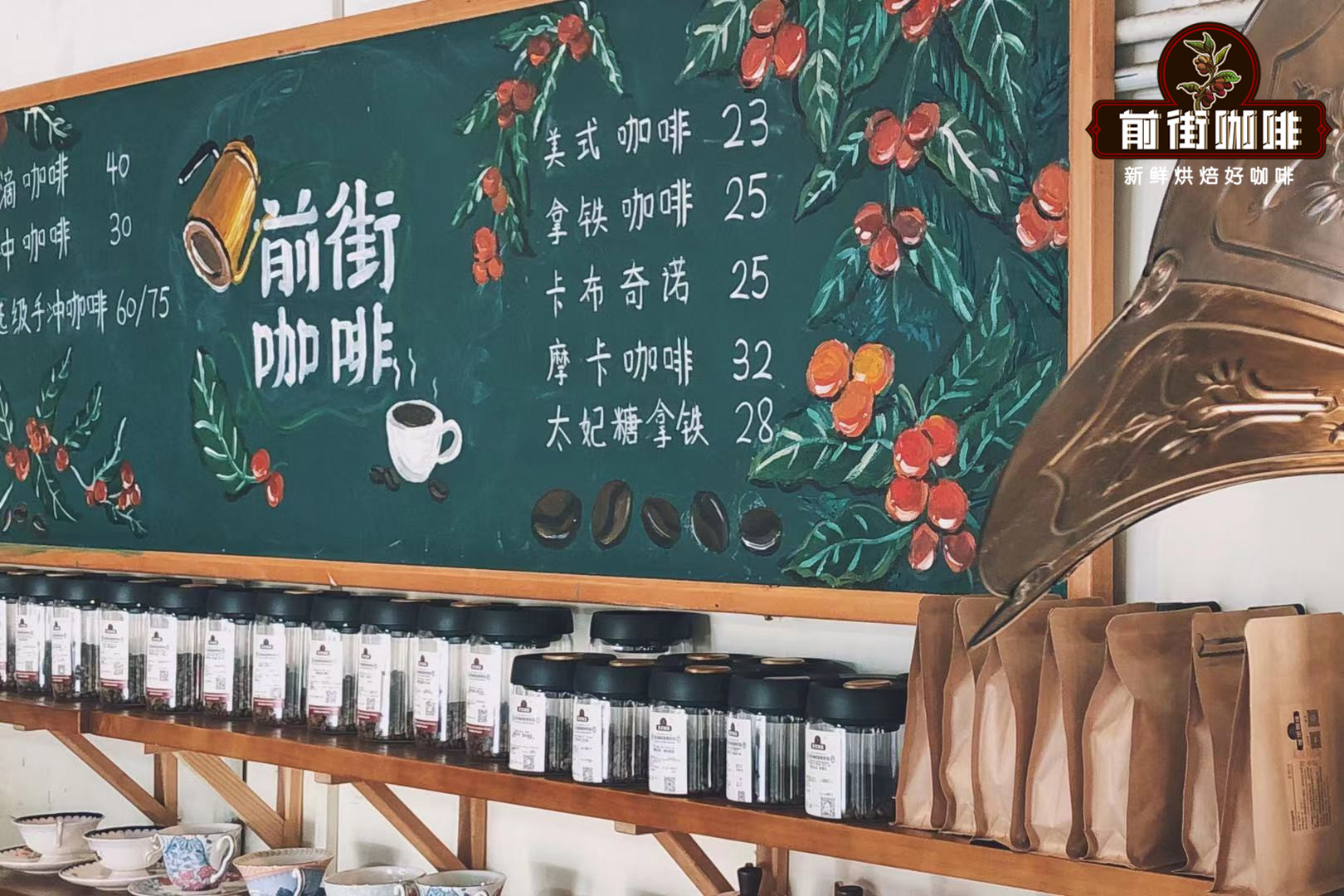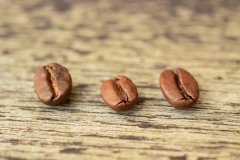Hand coffee filter cup is very knowledgeable! Flow rate data of several common coffee filter cups

For professional baristas, please follow the coffee workshop (Wechat official account cafe_style)
In the Japanese magazine 'coffee cup', it is mentioned about the flow rate of several commonly seen coffee filter cups, which is a very interesting result, which usually does not seem to be discussed when making coffee by hand. Let's take a look at the picture above, from left to right, cooking time from fast to slow, in order:
HARIO V60 → KONO → doughnut filter cup → KALITA → MELITA
The speed of the extraction time mentioned in the magazine is just a comparison, and there is no exact data, which makes my heart itch, so I have to use a very stupid method to measure several coffee filter cups I have on hand. Although not very rigorous, but more or less reference value, hoping to throw a brick to attract jade, together to explore the secret of hand-brewed coffee.
First, use the amount of water from 400CC and pour it directly into a filter cup without filter paper to see how long it takes to finish. This method is a little stupid for tapered filter cups, so only a few ladder filter cups are made.
[filter-free group flow rate test second / 400CC]
KALITA 101ceramic filter cup for 12 seconds
SANYO Sanyo ceramic filter cup for 18 seconds
BONMAC single hole ceramic filter cup for 28 seconds
KALITA 102ceramic filter cup for 28 seconds
KALITA 185 ceramic filter cup 34 seconds
Stainless steel filter cup for Tosa and paper for 46 seconds
KINTO metal mesh filter cup for 57 seconds
Next, put in the fan-shaped filter paper, also pour in the amount of water from 400CC, and test the time of flow without coffee powder.
[filter paper group flow rate test second / 400CC]
Name time
SANYO Sanyo ceramic filter cup for 45 seconds
SANYO Sanyo ceramic filter cup new version 35 seconds
BONMAC single hole ceramic filter cup for 50 seconds
KALITA 101ceramic filter cup 1 minute 52 seconds
KALITA Bozo saw the burned ceramic filter cup for 35 seconds
KALITA 102ceramic filter cup for 52 seconds
KALITA 155stainless steel filter cup 1 minute 05 seconds
KALITA 185 ceramic filter cup not tested
Stainless steel filter cup for Toussa and paper has not been tested.
KINTO metal mesh filter cup not tested
Hario V60 glass filter cup conical for 25 seconds
Hario V60 ceramic filter cup conical 46 seconds
New version of Hario V60 ceramic filter cup for 30 seconds
UN CAFE ceramic filter cup conical for 60 seconds
Melita siphon filter cup 3 minutes 40 seconds
After the experimental results, when there was no filter paper, the KALITA 101ceramic filter cup with the fastest flow rate became the slowest. What is the reason for this? The original problem lies in the fit between the filter paper and the coffee filter cup. when we use the fan-shaped filter paper, we have to fold the side in half, so the thickness of the paper at the bottom will be doubled, and this part will fit at the bottom of the inside of the filter cup. If you happen to have a KALITA 101filter cup on hand, you will find that most of its three outlet holes are covered by filter paper.
Then why don't BONMAC and SANYO ceramic filter cups have this situation? Because it has a rib-like groove next to the outlet, it will create a gap between the filter paper and the bottom of the filter cup, so the flow speed will not be affected. Friends who do not have these two filter cups can refer to Hongze Coffee's previously published article: 'Taguchi Guard. The unrevealed secret of making coffee at the Baja Cafe.'
So after knowing the difference between these filter cups, you have to adjust the coffee grinding thickness or the amount of powder used when using KALITA 101and 102ceramic filter cups. It is recommended that the slowest filter cup should use less powder to extract less coffee liquid, and vice versa.
In addition, although the tapered filter cup is not in this test, we can imagine that the reason that affects its flow rate is definitely related to the degree of fit between the filter paper and the filter cup, so all brands work on the inner guide groove.
Important Notice :
前街咖啡 FrontStreet Coffee has moved to new addredd:
FrontStreet Coffee Address: 315,Donghua East Road,GuangZhou
Tel:020 38364473
- Prev

The proportion of latte Italian coffee Italian coffee with what beans to make milk foam Common questions
Professional barista exchanges, please pay attention to coffee workshop (Weixin Official Accounts cafe_style). Usually, coffee is drunk with latte, cappuccino, mocha, American, Italian and macchiato. All kinds of names are confusing. What's the difference between these coffees? Milk to coffee ratio? A picture takes you to understand! Coffee tastes vary from place to place, usually drinking it.
- Next

Healthy drinking Coffee | freshness and Preservation of Coffee
Professional barista communication Please pay attention to the coffee workshop (Wechat official account cafe_style) generally drink bitter heavy-roasted coffee, want to add sugar, enjoy the sweet taste; light roasting is sour, but also add cream, cream balls, sugar and other seasonings. These additives will spoil the coffee and cause various burdens on the body. The author prefers the golden mean and the bitterness of roasted coffee.
Related
- Beginners will see the "Coffee pull flower" guide!
- What is the difference between ice blog purified milk and ordinary milk coffee?
- Why is the Philippines the largest producer of crops in Liberia?
- For coffee extraction, should the fine powder be retained?
- How does extracted espresso fill pressed powder? How much strength does it take to press the powder?
- How to make jasmine cold extract coffee? Is the jasmine + latte good?
- Will this little toy really make the coffee taste better? How does Lily Drip affect coffee extraction?
- Will the action of slapping the filter cup also affect coffee extraction?
- What's the difference between powder-to-water ratio and powder-to-liquid ratio?
- What is the Ethiopian local species? What does it have to do with Heirloom native species?

